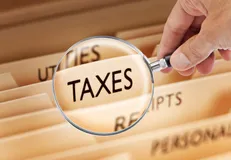Introduction:
Tax compliance is a critical aspect of every citizen’s financial responsibility. However, navigating the complex world of taxes can be overwhelming, especially when dealing with different codes and numbers. One such essential identifier is the “tax check code,” which plays a significant role in verifying your tax compliance status. In this article, we will delve into the details of the tax check code, its purpose, how to obtain it, and how to use it to ensure your tax affairs are in order.
Understanding the Tax Check Code
What is the Tax Check Code?
The tax check code is a unique identifier provided by tax authorities to individuals and entities for the purpose of verifying their tax compliance status. It is a crucial piece of information that can determine your eligibility for certain financial transactions and benefits.
Why is the Tax Check Code Important?
The tax check code is vital for various financial activities, such as opening a new bank account, applying for a loan, or making specific high-value transactions. It serves as proof that you are up-to-date with your tax obligations and do not have any outstanding liabilities.
Obtaining Your Tax Check Code
How to Obtain Your Tax Check Code
To obtain your tax check code, you can follow these simple steps:
Register for Taxation:
Ensure you are registered with the relevant tax authority in your country or region.
Online Application:
Many tax authorities now provide online portals where you can apply for your tax check code. Visit the official website and fill out the necessary forms
Verification Process:
Your tax information will be verified, and if all your tax returns are filed correctly, you will receive your tax check code through the preferred communication method.
Understanding Your Tax Check Code
Decoding the Tax Check Code
The tax check code comprises a combination of letters and numbers that hold specific information about your tax compliance status. While the exact format may vary depending on the tax authority, it generally contains the following details:
Tax Office Number:
The code usually begins with the tax office number, indicating the tax authority that issued the code.
Year of Issuance:
The code might include the year of issuance, indicating the most recent tax year for which your compliance is verified.
Individual Reference Number:
- This unique number helps identify you as the taxpayer associated with the code.
Using Your Tax Check Code
Validating Financial Transactions
When engaging in various financial transactions, especially significant ones, banks and financial institutions may request your tax check code to ensure your tax compliance. It is essential to provide this information accurately to proceed with the transaction smoothly.
Verifying Eligibility for Government Benefits
Certain government benefits, tax refunds, or subsidies are subject to tax compliance. Your tax check code may be required to verify your eligibility and process the benefits accordingly.
Frequently Asked Questions (FAQs) about tax check code.
Q1. Is the tax check code the same as the tax identification number?
No, the tax check code and tax identification number are two distinct identifiers. The tax identification number (TIN) is a unique number assigned to each taxpayer, while the tax check code serves as proof of tax compliance.
Q2. Can I use my tax check code for multiple transactions?
Yes, your tax check code is a multi-purpose identifier, and you can use it for various financial transactions and applications.
Q3. Is it possible to change my tax check code?
In most cases, your tax check code remains the same unless there are significant changes in your tax status or identification details.
Conclusion
The tax check code is a crucial element in the world of taxation and financial transactions. It provides an easy and efficient way for tax authorities and financial institutions to verify your tax compliance status. By obtaining and using your tax check code correctly, you can ensure a smoother experience when dealing with various financial activities and government benefits.
Remember, staying tax compliant is not just a legal obligation; it also ensures your financial stability and peace of mind. So, be proactive in obtaining your tax check code and use it responsibly for all your financial transactions. Stay compliant, and your financial journey will be on the right track!







